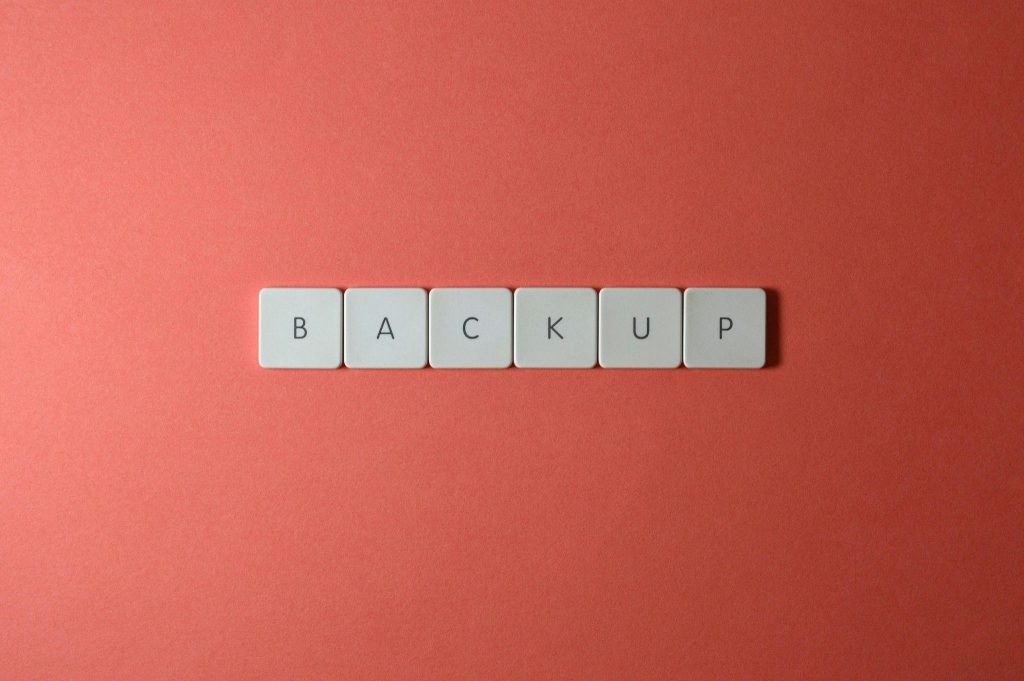In today’s digital landscape, data protection has become more critical than ever. With cyber threats evolving and the volume of digital assets growing exponentially, choosing the right backup software isn’t just a technical decision—it’s a strategic necessity for both individuals and businesses alike.
Key Factors to Consider When Choosing Backup Software
The success of your data backup strategy depends heavily on selecting software that aligns with your specific needs. Let’s explore the crucial factors that should guide your decision.
Reliability and Ease of Use: Ensuring Smooth Operation
Reliability in backup software isn’t just about consistent performance—it’s about peace of mind. The best backup solutions combine robust functionality with intuitive interfaces, making data protection accessible to users of all technical levels.
Essential features for reliable backup software:
- Automated backup scheduling with customizable frequency options
- Intuitive restoration process with clear step-by-step guidance
- Version control capabilities for tracking file changes
- Progress monitoring with detailed status reports
- File filtering options to customize backup selections
- Error reporting with actionable notifications
- Cross-platform compatibility for diverse system environments
Backup Speed and Performance: Minimizing Downtime
Backup speed directly impacts productivity and system resources. Modern backup solutions must balance thorough data protection with efficient performance.
| Backup Type | Average Speed | System Impact |
|---|---|---|
| Full System | 2-4 hours/TB | High |
| Incremental | 15-30 min/TB | Low |
| Differential | 1-2 hours/TB | Medium |
| Cloud Backup | Varies by connection | Low-Medium |
Cloud Integration and Storage: Flexibility for the Future
Cloud backup solutions have revolutionized data protection by offering unprecedented flexibility and accessibility. Modern backup software should provide:
- Hybrid backup options combining local and cloud storage
- Automatic syncing between devices and cloud storage
- Bandwidth throttling for optimized performance
- Selective cloud backup for priority files
- Geographic redundancy for enhanced data protection
Security Features: Protecting Your Data from Threats
In an era of sophisticated cyber threats, robust security is non-negotiable. Essential security features include:
| Security Feature | Purpose | Importance Level |
|---|---|---|
| AES-256 Encryption | Data protection | Critical |
| Two-factor authentication | Access control | High |
| Ransomware protection | Threat prevention | Critical |
| Zero-knowledge privacy | Data privacy | High |
| End-to-end encryption | Data transfer security | Critical |
Top 3 Backup Software Solutions for 2025

1. Acronis True Image: A Comprehensive and Secure Solution
Acronis True Image stands out as a feature-rich backup solution that caters to both personal and professional needs. The software combines advanced security features with user-friendly interfaces.
Key Features:
- Active ransomware protection with AI-powered detection
- Blockchain-based file certification
- Full image backup with universal restore capabilities
- Real-time cloud syncing
- Mobile device backup
| Plan | Storage | Price/Year | Best For |
|---|---|---|---|
| Essential | 50GB | $49.99 | Personal use |
| Advanced | 500GB | $89.99 | Small business |
| Premium | 1TB+ | $124.99 | Enterprise |
2. Backblaze: The Simple and Affordable Cloud Backup
Backblaze has earned its reputation as a user-friendly backup solution with unlimited storage capabilities. Its straightforward approach makes it ideal for users seeking simplicity without compromising on features.
Distinctive Features:
- Unlimited cloud storage for one computer
- Automatic file detection and backup
- Physical hard drive restore service
- 30-day version history
- B2 cloud storage integration
Performance Metrics:
| Aspect | Rating | Notes |
|---|---|---|
| Upload Speed | 4/5 | Optimized for continuous backup |
| Restore Speed | 3.5/5 | Multiple restore options |
| Ease of Use | 5/5 | Single-click setup |
| Value | 4.5/5 | Unlimited storage included |
3. Carbonite: Reliable Backup with Advanced Recovery Options
Carbonite offers enterprise-grade backup solutions with a focus on business continuity and disaster recovery. The software provides comprehensive protection for organizations of all sizes.
Advanced Features:
- Server backup capabilities
- Bare metal restore
- Remote deployment options
- HIPAA compliance support
- Courier recovery service
| Service Level | Features | Price Range | Target Users |
|---|---|---|---|
| Safe Basic | File backup | $6/month | Home users |
| Safe Plus | External drive backup | $9/month | Power users |
| Safe Pro | Mirror image backup | $12/month | Professionals |
How to Choose the Best Backup Solution for Your Needs

Selecting the optimal backup solution requires a systematic approach to evaluating your specific requirements against available options. Let’s dive deeper into each user category and their unique needs.
Backup Needs for Personal Users: Simple, Affordable, and Secure
Personal users range from casual computer users to power users with extensive digital libraries. Here’s a comprehensive breakdown of considerations:
Storage Requirements Analysis:
| Content Type | Average Size | Backup Frequency |
|---|---|---|
| Documents | 1-5 GB | Daily |
| Photos | 50-200 GB | Weekly |
| Videos | 100-500 GB | Weekly |
| Music | 20-50 GB | Monthly |
| System Files | 50-100 GB | Monthly |
Key Features Personal Users Should Prioritize:
- Continuous Backup Protection – Ensures files are backed up as they’re modified
- File Version History – Allows recovery of previous versions of documents
- Mobile Device Support – Syncs data across multiple devices
- Simple Recovery Process – Enables quick file restoration without technical expertise
- Affordable Monthly Plans – Provides flexibility in subscription options
Backup Needs for Small Businesses: Scalability and Enhanced Security
Small businesses face unique challenges in data protection, requiring more robust solutions that can grow with their needs.
Essential Business Backup Components:
- Data Protection Strategy
- Regular automated backups
- Multiple backup locations
- Disaster recovery planning
- Business continuity measures
- Security Requirements
- End-to-end encryption
- Access control management
- Audit trails for compliance
- Remote wipe capabilities
| Business Size | Recommended Features | Estimated Storage Needs |
|---|---|---|
| 1-10 employees | Basic file backup, cloud storage | 1-5 TB |
| 11-50 employees | Server backup, compliance features | 5-20 TB |
| 51-200 employees | Advanced security, dedicated support | 20-100 TB |
Backup Needs for Enterprises: High-Capacity Solutions with Centralized Management
Enterprise organizations require sophisticated backup solutions that can handle complex infrastructure and strict compliance requirements.
Critical Enterprise Backup Features:
- Centralized Management Console
- Multi-site backup management
- Role-based access control
- Advanced reporting capabilities
- Policy enforcement tools
- Advanced Security Protocols
- Military-grade encryption
- Multi-factor authentication
- Compliance certification (HIPAA, GDPR, etc.)
- Security incident reporting
- Scalability Options
- Unlimited storage capacity
- Multiple retention policies
- Flexible deployment options
- Custom API integration
Enterprise Backup Considerations Matrix:
| Aspect | Requirements | Important Features |
|---|---|---|
| Infrastructure | Hybrid cloud support | Multi-site replication |
| Security | Advanced encryption | Compliance certifications |
| Management | Centralized control | Custom reporting |
| Recovery | Quick restore options | Point-in-time recovery |
| Support | 24/7 availability | Dedicated account manager |
Decision-Making Framework
To choose the right backup solution, follow this structured approach:
- Assessment Phase
- Evaluate current data volume
- Project future growth
- Identify critical data
- Define recovery objectives
- Feature Analysis
- Compare must-have features
- Evaluate nice-to-have features
- Consider future requirements
- Check compatibility with existing systems
- Cost Evaluation
- Calculate total cost of ownership
- Consider implementation costs
- Factor in training requirements
- Evaluate ROI potential
- Trial and Testing
- Request product demonstrations
- Conduct pilot testing
- Evaluate user feedback
- Assess technical support quality
Selection Criteria Checklist:
- Meets current storage needs with room for growth
- Provides required security features
- Fits within budget constraints
- Offers necessary backup frequency options
- Includes required compliance features
- Provides acceptable recovery times
- Offers suitable technical support
- Compatible with existing infrastructure
Remember that the best backup solution isn’t always the most feature-rich or expensive option. It’s the one that best aligns with your specific needs while providing reliable data protection and manageable operational overhead. Consider starting with a basic solution that meets your core requirements and upgrading as your needs evolve. This approach ensures you’re not paying for features you don’t need while maintaining the flexibility to scale up when necessary.
When making the final decision, prioritize:
- Reliability – The solution must consistently perform as expected
- Usability – Users should be able to operate the system effectively
- Support – Vendor should provide adequate technical assistance
- Value – Features and benefits should justify the cost
- Scalability – Solution should accommodate future growth
Modern data protection requires robust backup solutions that balance security, usability, and performance. Whether you’re an individual protecting personal files or an enterprise safeguarding critical data, choosing the right backup software is crucial for ensuring data integrity and business continuity. Consider your specific needs, budget constraints, and required features when making your selection. Remember that the most expensive option isn’t always the best—focus on finding a solution that aligns with your unique requirements while providing reliable data protection and peace of mind.

